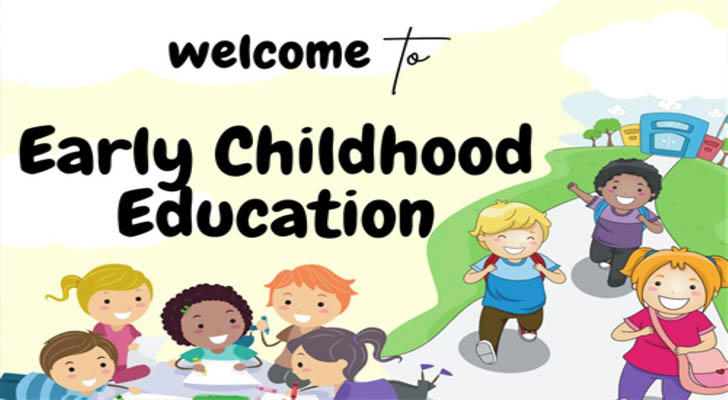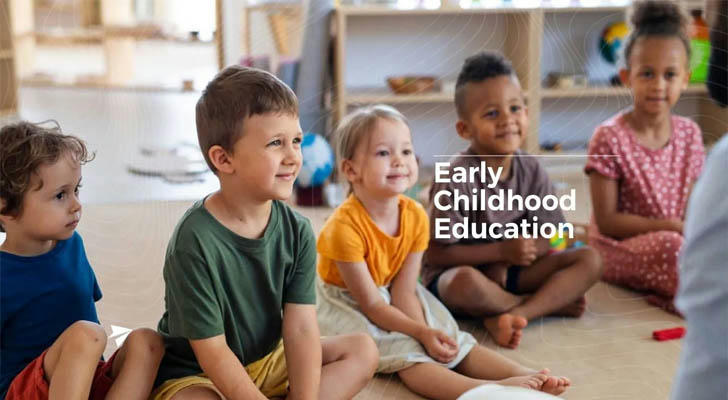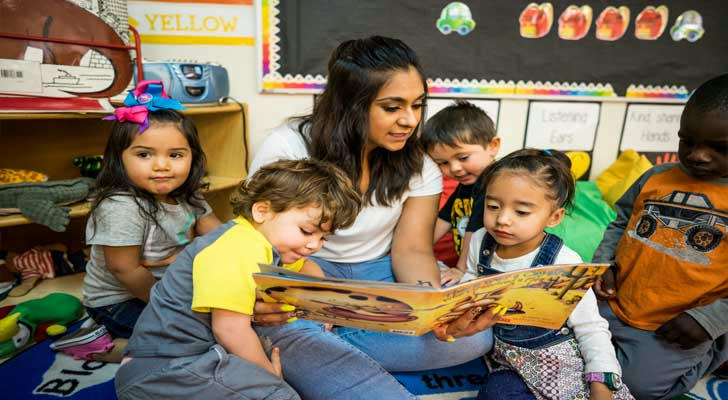The Magic of Early Childhood Education: Shaping Tomorrow’s Minds Today 🌟📚
When we think about the future, we often focus on what children will do as adults. But the truth is, the foundation for their success starts long before they can walk, talk, or even read. Early childhood education (ECE) plays a pivotal role in shaping the minds of young children and setting the stage for lifelong learning.
In this article, we’ll dive into the world of early childhood education, exploring its significance, the benefits it offers, and how a great start can positively impact a child’s development. Plus, we’ll share a heartwarming real-life example to show just how impactful this stage of education can be.

What is Early Childhood Education? 🎒
Early childhood education refers to the period of learning that takes place from birth to about eight years old—this is the time when children’s brains are developing at an incredibly rapid pace. ECE can take place in many different settings, including daycare centers, preschools, Head Start programs, or even at home with parents.
But it’s not just about learning numbers and letters. Early childhood education is all about fostering the social, emotional, cognitive, and physical development of children. It helps them build skills such as problem-solving, communication, and working with others. These skills form the foundation for future academic success and, more importantly, for success in life.
Why is Early Childhood Education Important? 🧠
Brain Development at Its Peak
Did you know that 90% of a child’s brain develops in the first five years of life? That’s why early childhood education is so important. During this period, children’s brains are like sponges, absorbing new information and forming connections that will last a lifetime. High-quality early education can promote cognitive development, language skills, and even social abilities.Social Skills and Emotional Growth
At an early age, children begin to learn how to interact with others. In preschool or daycare, they engage in play with their peers, developing skills like empathy, turn-taking, and managing emotions. Early exposure to group settings helps children become comfortable with social interactions, which is crucial for building confidence and forming relationships as they grow.Lifelong Learning Foundation
Early childhood education sets the tone for a child’s future in the classroom and beyond. Research has shown that children who participate in high-quality early education programs are more likely to do well academically, graduate from high school, and even pursue higher education. In short, ECE is a springboard for future success.Improved Behavior and Reduced Gaps
Children who attend early childhood education programs tend to show better behavior and self-regulation in later years. Additionally, studies have shown that early education can help close achievement gaps between children from different socioeconomic backgrounds. By giving all children access to quality education early on, we can provide a more equitable start in life.

The Power of Play: Learning Through Fun 🧸🎨
One of the key aspects of early childhood education is play. It’s not just about having fun—through play, children learn important life skills. Whether they’re building with blocks, engaging in pretend play, or working together to complete a puzzle, children are learning how to think creatively, solve problems, and collaborate with others.
For example, a child who is playing a game with friends might be learning about fairness, negotiation, and patience. These are skills that will serve them throughout their lives. That’s why many early childhood programs incorporate plenty of play into their daily routines.
Case Study: Mia’s Preschool Journey 🌈
Let’s take a look at Mia, a 4-year-old girl from New York, who attended a local preschool program for two years. When Mia first started preschool, she was a shy and quiet child who preferred to stay by her mother’s side. But her parents knew that early education was crucial, so they enrolled her in a program that emphasized both academic and social development.
At first, Mia struggled with interacting with other children and was hesitant about joining group activities. But thanks to the guidance of her compassionate teacher and the nurturing environment, Mia began to grow. Her teacher used playful activities—like group storytelling, arts and crafts, and cooperative games—to encourage Mia to engage with her peers. Over time, Mia started to build confidence, form friendships, and even take on leadership roles in small group activities.
By the end of the school year, Mia had transformed into a confident, outgoing child who loved to share her ideas and play with her classmates. Her parents noticed significant improvements not just in her social interactions, but also in her ability to communicate her thoughts clearly. Mia had gained the foundational skills she needed to enter kindergarten ready to thrive.
Mia’s story is a perfect example of how early childhood education can positively shape a child's development, helping them build the skills they need to succeed in the classroom and beyond.

How Parents Can Support Early Learning 🏡
While enrolling in an early childhood education program is essential, parents also play a huge role in their child’s learning journey. Here are some ways to support early childhood education at home:
Read Together: Reading is one of the best ways to boost your child’s language development. Make reading a daily habit—whether it’s reading a picture book together or listening to your child read their favorite story. It helps build vocabulary and comprehension skills.
Engage in Play: Encourage your child to play creatively. Provide them with toys and activities that foster imagination, like building blocks, art supplies, or pretend play sets. Play is how children process the world around them, and it enhances their cognitive and social skills.
Foster Independence: Let your child try new tasks on their own, such as putting on their shoes, setting the table, or helping with chores. Encouraging independence builds confidence and problem-solving abilities.
Create a Routine: Children thrive on structure. Establish a daily routine that includes time for learning, play, meals, and rest. A predictable routine helps children feel secure and makes transitions between activities easier.
Conclusion: A Bright Future Begins Early ✨
Early childhood education is more than just a stepping stone to kindergarten—it's an investment in the future. By providing young children with the right tools, skills, and support, we can ensure they grow up to be confident, capable learners. Whether it’s through play, social interaction, or academic challenges, every experience in those early years counts.
If you’re a parent, caregiver, or educator, remember that fostering a love of learning early on will have lasting benefits for children as they grow. And for those just beginning their journey into the world of early childhood education—whether as a parent, teacher, or curious learner—there’s never been a better time to embrace the magic of these formative years. 🌟
